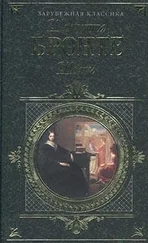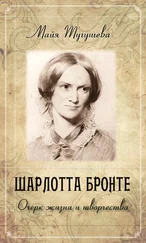Шарлотта Бронте - The Professor
Здесь есть возможность читать онлайн «Шарлотта Бронте - The Professor» — ознакомительный отрывок электронной книги совершенно бесплатно, а после прочтения отрывка купить полную версию. В некоторых случаях можно слушать аудио, скачать через торрент в формате fb2 и присутствует краткое содержание. Год выпуска: 2014, Издательство: epubBooks Classics, Жанр: Классическая проза, на английском языке. Описание произведения, (предисловие) а так же отзывы посетителей доступны на портале библиотеки ЛибКат.
- Название:The Professor
- Автор:
- Издательство:epubBooks Classics
- Жанр:
- Год:2014
- ISBN:нет данных
- Рейтинг книги:3 / 5. Голосов: 1
-
Избранное:Добавить в избранное
- Отзывы:
-
Ваша оценка:
- 60
- 1
- 2
- 3
- 4
- 5
The Professor: краткое содержание, описание и аннотация
Предлагаем к чтению аннотацию, описание, краткое содержание или предисловие (зависит от того, что написал сам автор книги «The Professor»). Если вы не нашли необходимую информацию о книге — напишите в комментариях, мы постараемся отыскать её.
The Professor — читать онлайн ознакомительный отрывок
Ниже представлен текст книги, разбитый по страницам. Система сохранения места последней прочитанной страницы, позволяет с удобством читать онлайн бесплатно книгу «The Professor», без необходимости каждый раз заново искать на чём Вы остановились. Поставьте закладку, и сможете в любой момент перейти на страницу, на которой закончили чтение.
Интервал:
Закладка:
A few English pupils there were in this school, and these might be divided into two classes. 1st. The continental English—the daughters chiefly of broken adventurers, whom debt or dishonour had driven from their own country. These poor girls had never known the advantages of settled homes, decorous example, or honest Protestant education; resident a few months now in one Catholic school, now in another, as their parents wandered from land to land—from France to Germany, from Germany to Belgium—they had picked up some scanty instruction, many bad habits, losing every notion even of the first elements of religion and morals, and acquiring an imbecile indifference to every sentiment that can elevate humanity; they were distinguishable by an habitual look of sullen dejection, the result of crushed self–respect and constant browbeating from their Popish fellow–pupils, who hated them as English, and scorned them as heretics.
The second class were British English. Of these I did not encounter half a dozen during the whole time of my attendance at the seminary; their characteristics were clean but careless dress, ill–arranged hair (compared with the tight and trim foreigners), erect carriage, flexible figures, white and taper hands, features more irregular, but also more intellectual than those of the Belgians, grave and modest countenances, a general air of native propriety and decency; by this last circumstance alone I could at a glance distinguish the daughter of Albion and nursling of Protestantism from the foster–child of Rome, the PROTEGEE of Jesuistry: proud, too, was the aspect of these British girls; at once envied and ridiculed by their continental associates, they warded off insult with austere civility, and met hate with mute disdain; they eschewed company–keeping, and in the midst of numbers seemed to dwell isolated.
The teachers presiding over this mixed multitude were three in number, all French—their names Mdlles. Zephyrine, Pelagie, and Suzette; the two last were commonplace personages enough; their look was ordinary, their manner was ordinary, their temper was ordinary, their thoughts, feelings, and views were all ordinary—were I to write a chapter on the subject I could not elucidate it further. Zephyrine was somewhat more distinguished in appearance and deportment than Pelagie and Suzette, but in character genuine Parisian coquette, perfidious, mercenary, and dry–hearted. A fourth maitresse I sometimes saw who seemed to come daily to teach needlework, or netting, or lace–mending, or some such flimsy art; but of her I never had more than a passing glimpse, as she sat in the CARRE, with her frames and some dozen of the elder pupils about her, consequently I had no opportunity of studying her character, or even of observing her person much; the latter, I remarked, had a very English air for a maitresse, otherwise it was not striking; of character I should think she possessed but little, as her pupils seemed constantly "en revolte" against her authority. She did not reside in the house; her name, I think, was Mdlle. Henri.
Amidst this assemblage of all that was insignificant and defective, much that was vicious and repulsive (by that last epithet many would have described the two or three stiff, silent, decently behaved, ill–dressed British girls), the sensible, sagacious, affable directress shone like a steady star over a marsh full of Jack–o'–lanthorns; profoundly aware of her superiority, she derived an inward bliss from that consciousness which sustained her under all the care and responsibility inseparable from her position; it kept her temper calm, her brow smooth, her manner tranquil. She liked—as who would not?—on entering the school–room, to feel that her sole presence sufficed to diffuse that order and quiet which all the remonstrances, and even commands, of her underlings frequently failed to enforce; she liked to stand in comparison, or rather—contrast, with those who surrounded her, and to know that in personal as well as mental advantages, she bore away the undisputed palm of preference—(the three teachers were all plain.) Her pupils she managed with such indulgence and address, taking always on herself the office of recompenser and eulogist, and abandoning to her subalterns every invidious task of blame and punishment, that they all regarded her with deference, if not with affection; her teachers did not love her, but they submitted because they were her inferiors in everything; the various masters who attended her school were each and all in some way or other under her influence; over one she had acquired power by her skilful management of his bad temper; over another by little attentions to his petty caprices; a third she had subdued by flattery; a fourth—a timid man—she kept in awe by a sort of austere decision of mien; me, she still watched, still tried by the most ingenious tests—she roved round me, baffled, yet persevering; I believe she thought I was like a smooth and bare precipice, which offered neither jutting stone nor tree–root, nor tuft of grass to aid the climber. Now she flattered with exquisite tact, now she moralized, now she tried how far I was accessible to mercenary motives, then she disported on the brink of affection—knowing that some men are won by weakness—anon, she talked excellent sense, aware that others have the folly to admire judgment. I found it at once pleasant and easy to evade all these efforts; it was sweet, when she thought me nearly won, to turn round and to smile in her very eyes, half scornfully, and then to witness her scarcely veiled, though mute mortification. Still she persevered, and at last, I am bound to confess it, her finger, essaying, proving every atom of the casket, touched its secret spring, and for a moment the lid sprung open; she laid her hand on the jewel within; whether she stole and broke it, or whether the lid shut again with a snap on her fingers, read on, and you shall know.
It happened that I came one day to give a lesson when I was indisposed; I had a bad cold and a cough; two hours' incessant talking left me very hoarse and tired; as I quitted the schoolroom, and was passing along the corridor, I met Mdlle. Reuter; she remarked, with an anxious air, that I looked very pale and tired. "Yes," I said, "I was fatigued;" and then, with increased interest, she rejoined, "You shall not go away till you have had some refreshment." She persuaded me to step into the parlour, and was very kind and gentle while I stayed. The next day she was kinder still; she came herself into the class to see that the windows were closed, and that there was no draught; she exhorted me with friendly earnestness not to over–exert myself; when I went away, she gave me her hand unasked, and I could not but mark, by a respectful and gentle pressure, that I was sensible of the favour, and grateful for it. My modest demonstration kindled a little merry smile on her countenance; I thought her almost charming. During the remainder of the evening, my mind was full of impatience for the afternoon of the next day to arrive, that I might see her again.
I was not disappointed, for she sat in the class during the whole of my subsequent lesson, and often looked at me almost with affection. At four o'clock she accompanied me out of the schoolroom, asking with solicitude after my health, then scolding me sweetly because I spoke too loud and gave myself too much trouble; I stopped at the glass–door which led into the garden, to hear her lecture to the end; the door was open, it was a very fine day, and while I listened to the soothing reprimand, I looked at the sunshine and flowers, and felt very happy. The day–scholars began to pour from the schoolrooms into the passage.
"Will you go into the garden a minute or two," asked she, "till they are gone?"
I descended the steps without answering, but I looked back as much as to say—
Читать дальшеИнтервал:
Закладка:
Похожие книги на «The Professor»
Представляем Вашему вниманию похожие книги на «The Professor» списком для выбора. Мы отобрали схожую по названию и смыслу литературу в надежде предоставить читателям больше вариантов отыскать новые, интересные, ещё непрочитанные произведения.
Обсуждение, отзывы о книге «The Professor» и просто собственные мнения читателей. Оставьте ваши комментарии, напишите, что Вы думаете о произведении, его смысле или главных героях. Укажите что конкретно понравилось, а что нет, и почему Вы так считаете.











